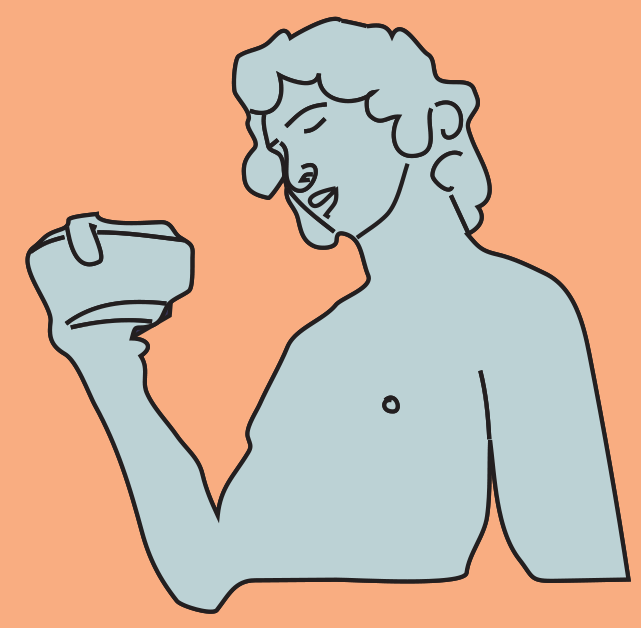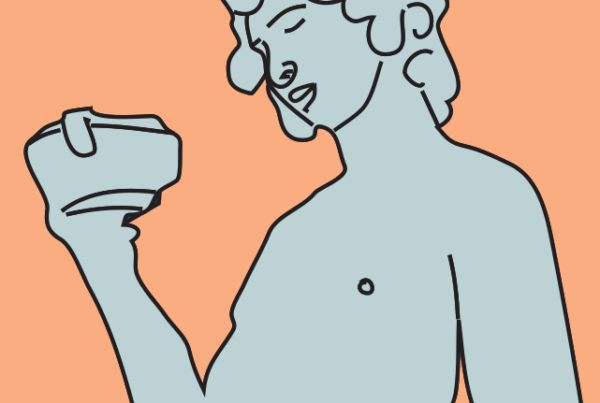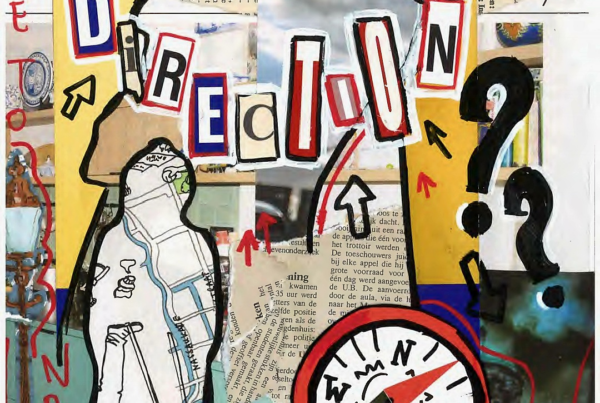

Fear determines many of the actions and decisions in our lives. Being afraid of certain consequences does not only stop us from acting but can also be the main motivation of why we do act. Take this column for example. Naturally, I have various reasons motivating me to write it: the enjoyment of writing, the need to share my reflections or a modest longing for fame. But I also have multiple fears driving my work, such as the fear of not doing anything useful with my time or the fear of writing a bad piece and looking stupid. I would like to think that my more positive drives overshadow my fears, but that would probably not be true.
It often feels as though fear has a disproportionally large impact on my decisions. I think this is the case for most people. Would you, for example, be reading this column if you were not afraid of being bored, of wasting free time or of being uninformed about the Psychology department? Maybe you still would. But, if you think about it, you could probably identify a fear among most of the reasons for your actions. This is unfortunately a very effective way to manipulate people’s behaviour. Terrorists, for example, figured out the strongest of our fears: the fear of death. Sadly, killing innocent civilians is very effective for instilling fear in our hearts. It makes people avoid crowded places, it segregates different cultural groups from each other and starts numerous political debates.
This fear of death has been a main drive for our actions since the beginning of mankind. Biologically speaking, our body activates the fight-or-flight response when we are afraid, preparing us to do whatever it takes to survive. So, in the short run, a bit of fear can be very useful. But there is also the long-term fear of death, which has a different effect. The tendency to fear dying, even without imminent danger, seems to be more comparable to an irrational fear. We all know that we will die someday, and we have all been in contact with death, through the loss of our dear ones. So, the concept of death itself is not something mysterious or scary, it’s just an ending. But still, we often fear it. It feels irrational to fear something inevitable that doesn’t affect us right now. Maybe the fear of death is more a fear of the unknown, since we don’t know what happens after someone dies. Despite a lack of evidence, many different beliefs about death do heavily influence people’s behaviour. Even for people who don’t believe in an afterlife, death can still be a big drive. I often wonder if we would still have as many great pieces of art, if people did not fear to be forgotten. How much of the artists’ urge to create consists of wanting to leave a legacy, to be remembered after their death?
I tend to support a more rational and arguably, even mindful notion of death. Epicurus, a philosopher from ancient Greece, called the people that fear death ‘fools.’ He reasoned that death was no concern for the living nor the dead, since when we are here, death is not present and when death is present, we are not here. He is basically saying that dying equals ceasing to exist, and it would be foolish to fear this state of ‘not being.’ I think we could extend Epicurus’ view to all fears. If we focus on the present, the object of our fear usually isn’t here, just the fear for it. Most of our fears about the future are irrational and wrong; so they are essentially also about nothing. Maybe by realizing this and focusing on the present, we can stop letting fear rule our actions. We don’t have to be fools led by a fear for nothing at all.

Fear determines many of the actions and decisions in our lives. Being afraid of certain consequences does not only stop us from acting but can also be the main motivation of why we do act. Take this column for example. Naturally, I have various reasons motivating me to write it: the enjoyment of writing, the need to share my reflections or a modest longing for fame. But I also have multiple fears driving my work, such as the fear of not doing anything useful with my time or the fear of writing a bad piece and looking stupid. I would like to think that my more positive drives overshadow my fears, but that would probably not be true.
It often feels as though fear has a disproportionally large impact on my decisions. I think this is the case for most people. Would you, for example, be reading this column if you were not afraid of being bored, of wasting free time or of being uninformed about the Psychology department? Maybe you still would. But, if you think about it, you could probably identify a fear among most of the reasons for your actions. This is unfortunately a very effective way to manipulate people’s behaviour. Terrorists, for example, figured out the strongest of our fears: the fear of death. Sadly, killing innocent civilians is very effective for instilling fear in our hearts. It makes people avoid crowded places, it segregates different cultural groups from each other and starts numerous political debates.
This fear of death has been a main drive for our actions since the beginning of mankind. Biologically speaking, our body activates the fight-or-flight response when we are afraid, preparing us to do whatever it takes to survive. So, in the short run, a bit of fear can be very useful. But there is also the long-term fear of death, which has a different effect. The tendency to fear dying, even without imminent danger, seems to be more comparable to an irrational fear. We all know that we will die someday, and we have all been in contact with death, through the loss of our dear ones. So, the concept of death itself is not something mysterious or scary, it’s just an ending. But still, we often fear it. It feels irrational to fear something inevitable that doesn’t affect us right now. Maybe the fear of death is more a fear of the unknown, since we don’t know what happens after someone dies. Despite a lack of evidence, many different beliefs about death do heavily influence people’s behaviour. Even for people who don’t believe in an afterlife, death can still be a big drive. I often wonder if we would still have as many great pieces of art, if people did not fear to be forgotten. How much of the artists’ urge to create consists of wanting to leave a legacy, to be remembered after their death?
I tend to support a more rational and arguably, even mindful notion of death. Epicurus, a philosopher from ancient Greece, called the people that fear death ‘fools.’ He reasoned that death was no concern for the living nor the dead, since when we are here, death is not present and when death is present, we are not here. He is basically saying that dying equals ceasing to exist, and it would be foolish to fear this state of ‘not being.’ I think we could extend Epicurus’ view to all fears. If we focus on the present, the object of our fear usually isn’t here, just the fear for it. Most of our fears about the future are irrational and wrong; so they are essentially also about nothing. Maybe by realizing this and focusing on the present, we can stop letting fear rule our actions. We don’t have to be fools led by a fear for nothing at all.



